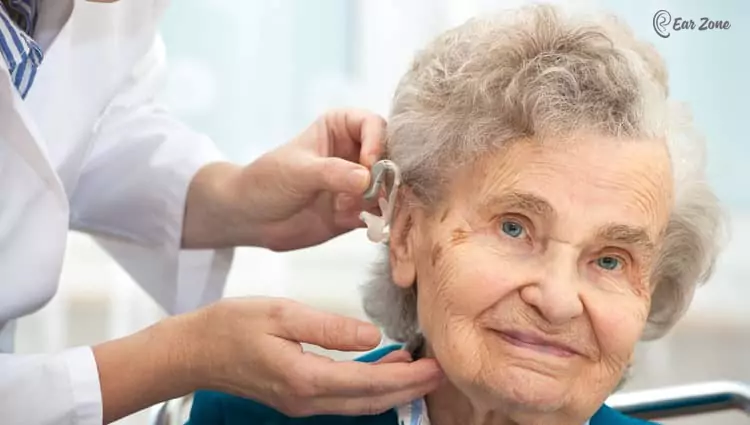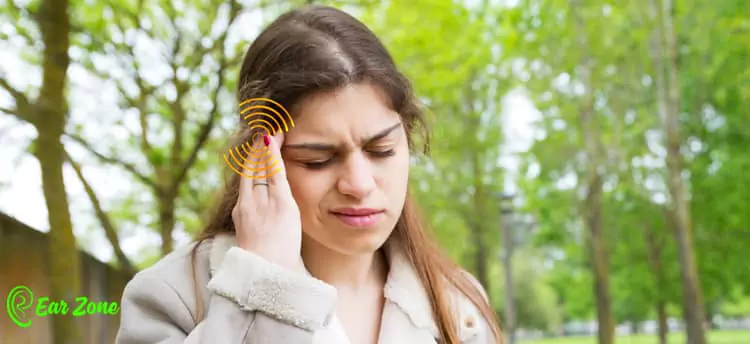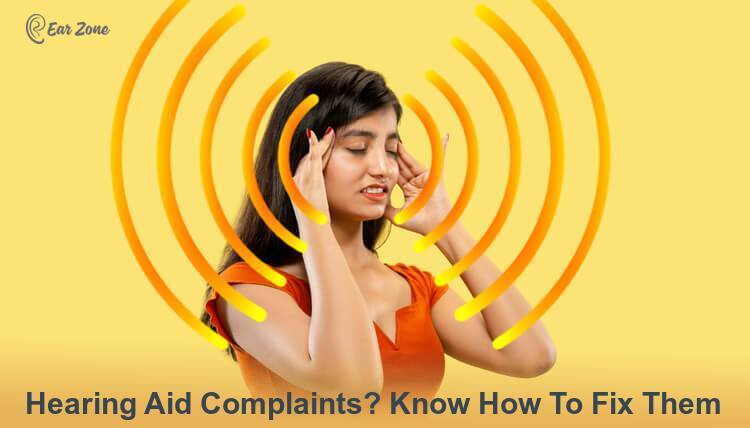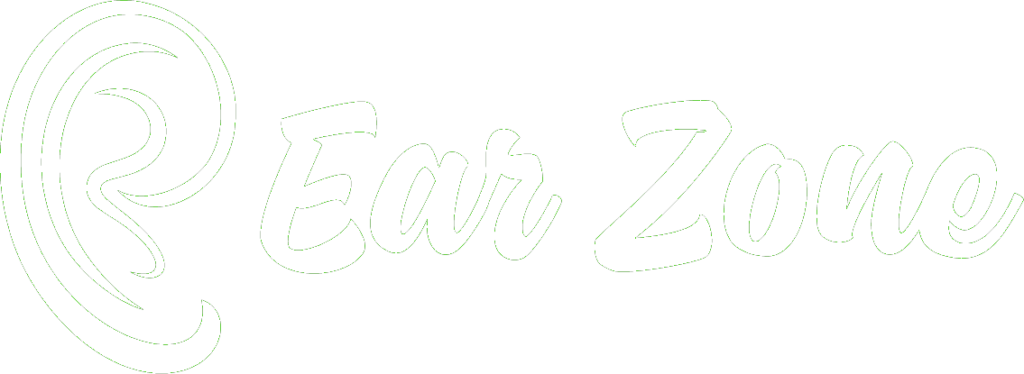Do hearing aids cause hearing loss? Can hearing aids damage your ears? These questions do occasionally pop up if you ask people wearing hearing aids, but have you consulted your audiologist to know if it is true? In this blog, we will unveil the truth and provide a scientific explanation to debunk the misconceptions regarding hearing aids causing hearing loss or making your hearing worse. There are a few isolated instances when hearing aids can damage your hearing. Read to know the truth behind this widely debated topic.
Table of Contents
What Is the Normal Range of Human Hearing?
Before we discuss whether hearing aids cause hearing loss, we should know about the hearing range of our ears. There are two aspects of hearing; the frequency and intensity (loudness). A newborn child can hear frequencies from 20 Hz (Hertz) to 20,000 Hz, and loudness range from 0 dB (decibels) to approximately 120–130 dB decibels (Note: safe maximum sound level for a newborn is 50-60 dB, and 85 dB for adults, sound above these levels can damage hearing).
As you age, your hearing range will keep reducing; as an average adult, your ability to hear high frequencies will reduce to around 15000 to 17000 Hertz1. The sensitivity of your ears to sound depends on your lifestyle and surroundings.
If you are suffering from diseases such as diabetes or hypertension, or you stay or work in a noisy environment, your ability to hear soft sounds is reduced. Your hearing ability will be better if you are not exposed to loud sounds.
If you do not protect your ears or take treatment you are heading towards permanent deafness, and sooner or later, you will need hearing aids.
What Do Hearing Aids Do?
A hearing aid is an electronic device programmed or tuned by your audiologist to compensate for your hearing loss. A hearing aid amplifies frequencies that you are unable to hear, so you can listen and communicate. For more information, read our article on How Do Hearing Aids Work? A Simple Guide.
Do Hearing Aids Cause Hearing Loss?

Hearing aids causing hearing loss is a misconception. Hearing aids perform according to industry standards, and ANSI and IEC are accepted global standards. The software in the hearing aid controls the output, gain, compression, and other parameters that do not expose you to excessive sounds. In the case of a loud sound near you, hearing aids compress the sound to protect your ears.
In fact, hearing aids have many other health benefits besides helping you hear better. A new study led by researchers at the Johns Hopkins Bloomberg School of Public Health found that older adults with a greater severity of hearing loss were more likely to have dementia, and the likelihood of dementia was lower among hearing aid users than among non-users.2
Why Do People Feel That Hearing Aids Causes Hearing Loss?
The human brain is very versatile and adapts to the changing scenarios or changing lifestyle of the person.
Let us explain this by an example, if you have a hearing loss of 50 dB, your brain will adapt to this level of hearing loss and will consider it as a normal hearing level. Now, if you start using a hearing aid and the brain starts receiving loud sounds, after a few days it will adapt itself to the amplified sound and will recalibrate itself to this new level of sound. Now, the new normal for your brain is the amplified sound.
For some reason, your hearing aids stop working or you run out of batteries, and you are without your hearing aids for a short while. You realize that you cannot hear properly or your hearing is worse than it was before you decided to wear the hearing aids. This happens as your brain is used to the amplified sound from the hearing aids, and people jump to an erroneous conclusion that hearing aids have worsened the hearing.
The real truth is that the brain has not been given sufficient time to adjust and adapt to the new condition of zero amplification. This is why people think that hearing aids cause hearing loss.
When Can Hearing Aids Cause Hearing Loss?
There are few rare instances when hearing aids cause hearing loss.
• Poor Hearing Aid Fitting
Poor fitting can cause damage to the ears. Most users reject hearing aids because of poor fitting.

A poor fit could be due to a loose earmold or the use of a wrong size ear tip. If a earmold or ear tip is not fitted properly, the hearing aid will start squealing. This is acoustic feedback; at times, the squealing is so loud that you cannot hear or understand anything. Loud squealing can damage your hearing.
• Using Non-Standard Sound Amplification Devices
Hearing aids are medical products, and the FDA regulates prescription hearing aids to ensure safety. Manufacturers design and produce hearing aids according to FDA, ANSI, and IEC guidelines. These guidelines specify the maximum permissible distortion, power consumption, output power, and other parameters to ensure that you get a quality product that is safe to use. Only a trained hearing aid fitter or an audiologist can fit the hearing aid.
Many small-time unscrupulous manufacturers market cheap sound amplification devices that may look similar to hearing aids. PSAPs or personal sound amplification products look similar to a BTE or ITC but are not regulated or follow any standards. Manufacturers of these low-quality devices tempt people by offering low prices.
Always check manufacturer credentials of the manufacturer before buying.
OTC or over the counter hearing aids are a new class of hearing aids that do not require trained medical personnel or audiologists for fitting. OTC hearing aids are approved by the FDA under certain circumstances.
- The user should be over 18 years old.
- The user should have mild to moderate hearing loss.
If your hearing loss is severe or profound or you are under 18, then you should use prescription hearing aids and not OTC hearing aids. Read our article on how hearing aids work and the different types of hearing aids.
• Poor Hearing Aid Programming or Tuning.
Digital hearing aids can be precisely programmed according to your hearing loss. Proper programming ensures that the hearing aid amplifies sound only in frequencies that cannot be heard well.
For example, if you have hearing loss in the high-frequency region (high musical notes or sharp sounds) and have little or no hearing loss in the low frequencies. (bass musical notes or drums) The Audiologist will program the hearing aid to increase high-frequency amplification and provide minimum or no amplification in the low-frequency region.
If programming is not done properly and unnecessary amplification is provided in the frequencies where hearing is normal, it will cause extreme discomfort and can damage your hearing.
A hearing aid will not cause hearing loss or damage your ears; it improves your ability to communicate and helps your social and professional life. The use of hearing aids may reduce the frequency and severity of cognitive decline, depression, and other health problems in adults.
Always consult your audiologist for advice. This article should give you the confidence to buy hearing aids, we highly recommend that you read our article on 17 Practical Tips for Getting Used To Hearing Aids.
References:
1. https://www.ncbi.nlm.nih.gov/books/NBK10924/
2. https://publichealth.jhu.edu/2023/new-study-links-hearing-loss-with-dementia-in-older-adults




